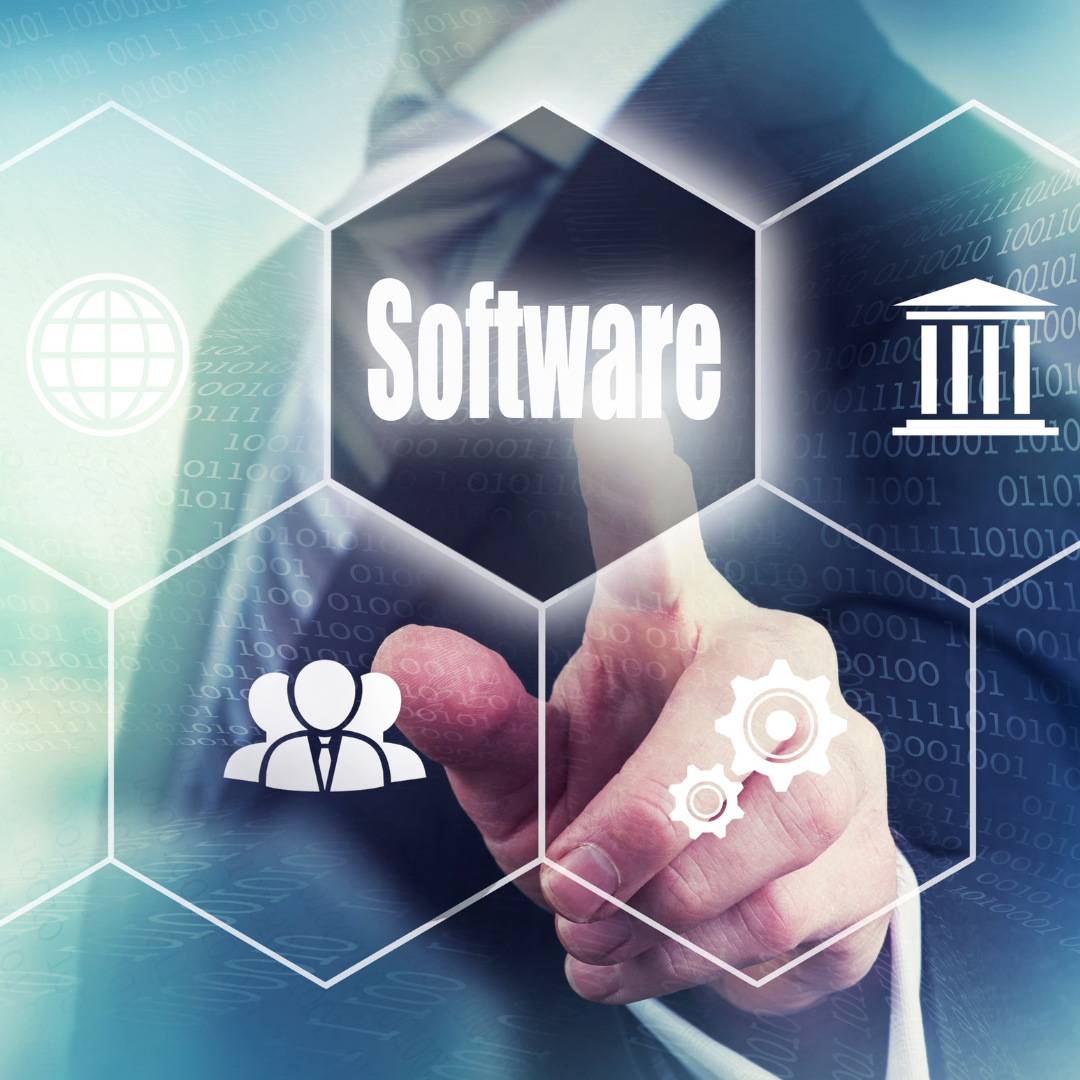In today’s digital age, small businesses are increasingly relying on software solutions to streamline their operations, boost productivity, and stay competitive in the market. The right software can make all the difference, enabling small businesses to efficiently manage their finances, track inventory, handle customer relationships, and much more. With countless options available in the market, it can be overwhelming for small business owners to navigate through the vast array of software choices.
In this comprehensive guide, we will explore the best software options specifically tailored to the needs of small businesses. Whether you are a budding entrepreneur or an established small business owner looking to optimize your operations, this guide will provide you with valuable insights and recommendations to help you make informed decisions and propel your business to new heights.
What is the Best Software for Small Businesses?
The answer to this question depends on the specific needs of your business. For instance, if you running a home care business, tools like scheduling or shift management software, client management software, and electronic health records software would help daily operations run smoothly. Similarly, if your job is to manage a farm, you would need solutions like horticultural software, weather forecasting software, and crop monitoring software to keep your crops safe and healthy for commercial use.
That said, some general tips that will help you choose the best software for your business include understanding your goals, determining your budget, and narrowing down your options based on those goals and budgets.
Once you understand what you need and how much money you can spend, it’s time to start evaluating software programs. Here are some of the best software programs for small businesses:
Intuit QuickBooks
Intuit QuickBooks is a popular accounting program that’s been used by small businesses for years. It has a wide range of features and is easy to use. It also comes with a free trial, so you can try it before you buy it.
Microsoft Outlook
Microsoft Outlook is an email, calendar, contact management, and task management program that’s been used by large corporations for years but is also frequently recommended as a good choice for smaller businesses because of its simplicity and wide range of features.
Google Docs
Google Docs is a free online document editing program that offers features similar to those found in more expensive software programs, like version control and collaboration tools. It’s also easy to learn and use, so it may be ideal if your small business.
Why Use Software for Your Business?
There are many benefits to using software for your business. It is more efficient and can also help you keep track of your data and transactions.
Plus, there are a number of different software options available, so you can find the perfect one for your needs. Among these choices, Microsoft Tools is considered to be a prominent player, offering a range of solutions tailored to diverse needs. For instance, if your focus is on data visualization and analytics, the powerful capabilities of tools like Power BI can prove invaluable.
To navigate this world of possibilities effectively, mastering proficiency becomes essential. Enrolling in a specialised Power BI program offered by STL Training platform or a similar reputable training provider can equip you with the necessary skills to harness Power BI to its fullest potential. With a plethora of software options at your disposal and the guidance of specialized training, you can confidently tailor your approach to match your unique requirements and goals.
Here are some key reasons why you should use software for your business:
Efficient Use of Resources
By using software, you can save time and money on administrative tasks. You’ll no longer have to spend hours tracking down paperwork or manually inputting information into databases. The software can take care of all this for you.
Improved Data Management
With software, you can easily keep track of your finances and other data-related information. This way, you can see how your business performs over time and make necessary changes accordingly.
Real-Time Tracking
With software, you can always be aware of what’s happening in your business. You’ll be able to track sales figures, customer activity, and more with ease. This makes it easier to manage your business and ensure that everything is running smoothly.
Similar or Better Services
For small businesses, there are a number of viable software options out there. Here are some of the best:
Office 365
Microsoft’s flagship subscription office suite offers a wide range of features, including a calendar, email, document management, and chat features. It’s perfect for businesses that need an all-in-one solution.
Google Apps for Business
Google’s suite of cloud-based office applications is popular with businesses because it’s affordable and easy to use. Features include a calendar, spreadsheet editor, and email client. Google also offers support for multiple users and domains.
Open Office
This open-source software is available in a paid subscription plan and as part of various Linux distributions. It has a strong reputation for being user-friendly and customizable.
Different Types of Software
The following section explores different types of software specifically designed for businesses. By understanding the functionalities and benefits of these software types, enterprises can make informed decisions about which ones to adopt for their specific needs.
1. Task Management Software
Task management software is designed to help businesses organize, prioritize, and track tasks and projects. It allows teams to create, assign, and manage tasks efficiently, ensuring smooth collaboration and improved productivity. One of the most popular task management software includes beSlick, key features of which entail easy-to-use project templates, automated reminders, and reporting functions. It also integrates with other software such as Google Drive and Dropbox, making it even easier to manage tasks and collaborate with others.
2. Project Management Software
Project management software goes beyond task management by providing comprehensive tools for planning, executing, and monitoring projects. It helps businesses stay organized, meet deadlines, and deliver projects successfully. Popular project management software options include Microsoft Project, Basecamp, and Jira. The key features of project management software are as follows:
3. Customer Relationship Management (CRM) Software
CRM software helps businesses manage their interactions and relationships with customers. It enables organizations to centralize customer data, track leads, automate sales processes, and enhance customer service. Popular CRM software includes Salesforce, HubSpot, and Zoho CRM. The key features of CRM software include:
4. Inventory Management System
Businesses that need to manage a substantial inventory can benefit from investing in an inventory management system. This type of software is specifically designed to streamline and optimize the tracking, control, and organization of inventory. It provides real-time insights into stock levels, order processing, and inventory turnover, ensuring that businesses can efficiently manage their stock.
Different Types of Financing for Software
There are several different financing types for software, each with its strengths and weaknesses. Here’s a look at the most common options.
Traditional Loans
Perhaps the most traditional form of financing is a bank or financial institution loan. This type of financing can be expensive and require long-term commitments, but it can offer stability and security for your business.
Private Equity Funding
Private equity firms are typically interested in high-growth businesses, so they may be willing to invest in yours if you have a solid business plan and track record. However, this type of funding often comes with high expectations and long-term commitments, so be prepared to pitch your company well to potential investors.
Crowdfunding
Crowdfunding is a novel way to raise money from a large group of people who aren’t necessarily interested in investing in your company outright. You’ll need to create a good pitch and ensure your crowdfunding campaign is well-designed and executed, but crowdfunding can be an affordable way to get started with new technologies or expand into new markets.
Sales Tax Incentives
Some jurisdictions offer incentives for companies purchasing software through local sales channels, such as tax breaks or rebates on qualifying purchases. These programs vary from place to place, so it’s important to do some research before applying for them.
The Importance of Software for Small Business
This article has compiled the best software options for small businesses and explained why they are worth your time and investment. Whether you run a one-person business or have a team of employees, these applications will help you keep track of your finances, manage your customers, and additionally.
So don’t wait any longer – start using these applications today to improve the efficiency and profitability of your small business!







